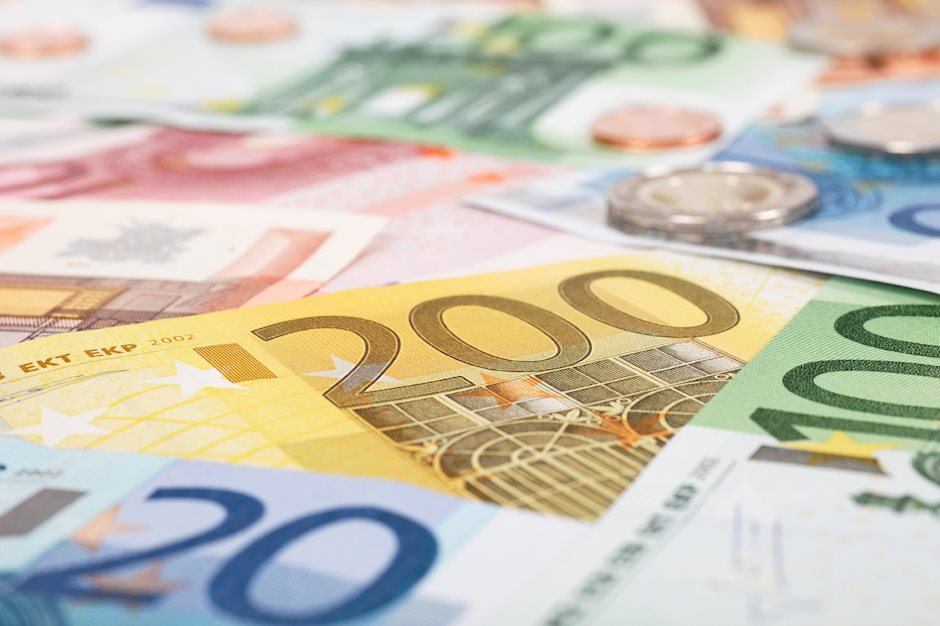EUR/USD posts modest gains above 1.1050, traders await US ADP report
- EUR/USD trades firmer near 1.1070 in Wednesday’s Asian session.
- The US ISM Manufacturing PMI came in weaker than expected in September.
- The Eurozone inflation dropped below the ECB target in September.

The EUR/USD pair trades with mild gains around 1.1070 during the Asian trading hours on Wednesday. Meanwhile, any signs of rising geopolitical tensions in the Middle East could weigh on riskier assets like the Euro (EUR). Investors will keep an eye on the US ADP Employment Change data for September, which is due later on Wednesday.
Traders are still assessing the chance of a jumbo rate cut by the US Federal Reserve (Fed) in November after Fed Chair Jerome Powell said the US central bank is not in a hurry and will lower its benchmark rate ‘over time.’ Financial markets are now pricing in nearly 37.4% odds of a 50 basis points (bps) cut in November, while the possibility of a 25 bps reduction stands at 62.6%, according to the CME FedWatch Tool.
The downbeat US economic data on Tuesday undermines the Greenback. The US ISM Manufacturing PMI was flat at 47.2 in September, weaker than the expectation of 47.5. The report indicated a continued contraction in the US manufacturing sector.
Across the pond, the Eurozone inflation eased in September, falling below the European Central Bank’s (ECB) target. The Harmonized Index of Consumer Prices (HICP) rose 1.8% YoY in September, compared to 2.2% in August, Eurostat showed Tuesday. This figure marked the lowest figure since April 2021. The eurozone economy may not be out of the woods yet, even though September's inflation rates are promising. The ECB cut the Deposit Facility Rate to 3.50% in September and has also hinted that another cut could be coming in the near future.
The fears of a wider war in the Middle East could exert some selling pressure on the shared currency and boost safe-haven assets like the USD. Iran launched over 200 ballistic missiles at Israel and Prime Minister Benjamin Netanyahu vows to retaliate against Iran for the missile attack on Tuesday.
(This story was corrected on October 2 at 07:29 GMT to specify that the ECB cut the Deposit Facility Rate to 3.50% in September.)
Euro FAQs
The Euro is the currency for the 19 European Union countries that belong to the Eurozone. It is the second most heavily traded currency in the world behind the US Dollar. In 2022, it accounted for 31% of all foreign exchange transactions, with an average daily turnover of over $2.2 trillion a day. EUR/USD is the most heavily traded currency pair in the world, accounting for an estimated 30% off all transactions, followed by EUR/JPY (4%), EUR/GBP (3%) and EUR/AUD (2%).
The European Central Bank (ECB) in Frankfurt, Germany, is the reserve bank for the Eurozone. The ECB sets interest rates and manages monetary policy. The ECB’s primary mandate is to maintain price stability, which means either controlling inflation or stimulating growth. Its primary tool is the raising or lowering of interest rates. Relatively high interest rates – or the expectation of higher rates – will usually benefit the Euro and vice versa. The ECB Governing Council makes monetary policy decisions at meetings held eight times a year. Decisions are made by heads of the Eurozone national banks and six permanent members, including the President of the ECB, Christine Lagarde.
Eurozone inflation data, measured by the Harmonized Index of Consumer Prices (HICP), is an important econometric for the Euro. If inflation rises more than expected, especially if above the ECB’s 2% target, it obliges the ECB to raise interest rates to bring it back under control. Relatively high interest rates compared to its counterparts will usually benefit the Euro, as it makes the region more attractive as a place for global investors to park their money.
Data releases gauge the health of the economy and can impact on the Euro. Indicators such as GDP, Manufacturing and Services PMIs, employment, and consumer sentiment surveys can all influence the direction of the single currency. A strong economy is good for the Euro. Not only does it attract more foreign investment but it may encourage the ECB to put up interest rates, which will directly strengthen the Euro. Otherwise, if economic data is weak, the Euro is likely to fall. Economic data for the four largest economies in the euro area (Germany, France, Italy and Spain) are especially significant, as they account for 75% of the Eurozone’s economy.
Another significant data release for the Euro is the Trade Balance. This indicator measures the difference between what a country earns from its exports and what it spends on imports over a given period. If a country produces highly sought after exports then its currency will gain in value purely from the extra demand created from foreign buyers seeking to purchase these goods. Therefore, a positive net Trade Balance strengthens a currency and vice versa for a negative balance.
Author

Lallalit Srijandorn
FXStreet
Lallalit Srijandorn is a Parisian at heart. She has lived in France since 2019 and now becomes a digital entrepreneur based in Paris and Bangkok.
















